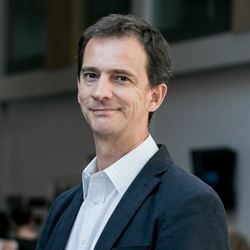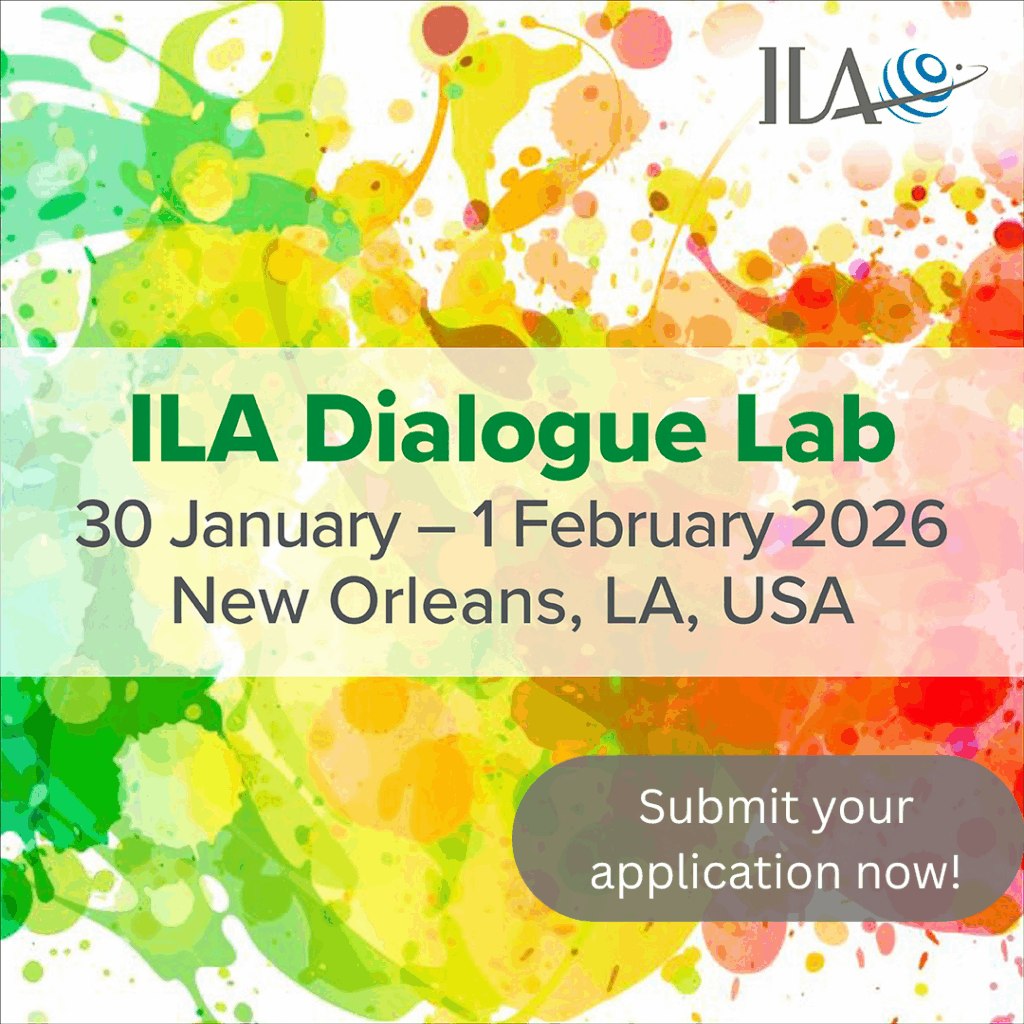
by Richard Bolden
Professor, Leadership and Management, University of the West of England, UK
1 May 2020
Share this article:
In the words of the Chinese saying we are indeed living in interesting times – both fraught with risk and opportunity. The turbulence of the last few years has revealed deep divisions within society, as illustrated particularly clearly in the Brexit vote within the UK and Trump presidency in the US. The rise of populism has been associated with scepticism and distrust of experts and evidence, with social media providing the perfect echo chamber for amplifying the polarity of perspectives and questioning the nature of “truth.” Differing ideologies and beliefs have been positioned in opposition to one another – them and us, winners and losers, do or die – rather than as an inevitable and desirable characteristic of a diverse and inclusive society, which enables creativity, adaptability and resilience in times of complexity, uncertainty and change.
One of the remarkable consequences of the Coronavirus pandemic has been how quickly it has reset the dial on many of these issues – fostering calls for compassion, solidarity, and collective action. At times like this it is our similarities rather than our differences that define us. This is as true for those in positions of power and privilege as those who are marginalised and/or find themselves living in precarity. We are all susceptible to the virus, all have people we care about who are likely to become very ill or perhaps even die should they catch it, and will all be affected by the economic and social impacts of the outbreak – not just for the months that it lasts but for years to come. The capacity of individuals, families, organisations, communities and nations to weather the storm is not equal, however, with those with least access to healthcare, financial, emotional and other resources bearing the brunt of the suffering.
An unexpected outcome of COVID-19 is the impact on the environment. The reduction in pollution levels around the world during just the relatively short time in which travel, manufacturing and other environmentally damaging activities have been reduced demonstrates both how directly human activity impacts on the environment and the remarkable ability of the environment, and the animals and plants within it, to recover if given the opportunity. For those who have been calling for a step-change for policy, practice and behaviour towards a more sustainable way of life there is no more compelling evidence of the extent to which this is possible and the environmental benefits it would produce.
For leadership educators, researchers and practitioners there are many important lessons to take from the current situation. I’m sure everyone will have their own interpretation of events but here are a few of my own takeaways so far.
The reduction in pollution levels around the world during just the relatively short time in which travel, manufacturing and other environmentally damaging activities have been reduced demonstrates both how directly human activity impacts on the environment and the remarkable ability of the environment, and the animals and plants within it, to recover if given the opportunity.
- Shared purpose – after winning a significant majority in the general election of December 2019 Boris Johnson and his government focussed on building a sense of urgency and commitment to “getting Brexit done” that largely entrenched rather than unified opinions around this issue. With COVID-19 the focus has completely shifted to a shared purpose that unites rather than divides individuals and communities. It took a little while to get to this point but, for now at least, the nation is far more unified around a common purpose than it has been for many years.
- Collective leadership – whilst there is a tendency to equate “leadership” with the traits and behaviours of individual “leaders” the COVID-19 pandemic demonstrates the need for individuals and groups to work concurrently and collaboratively in order to achieve leadership outcomes. Over the last few weeks, as Prime Minister Johnson fought his own personal battle with the virus, members of his cabinet have taken turns to stand alongside the Chief Medical Officer and other experts to provide clarity and direction to an uncertain population. Whilst this is perhaps the most visible “leadership” at national level it is abundantly clear that it is dependent on significant acts of leadership elsewhere. The remarkable story of Captain Tom Moore, who set out to raise £1000 for the NHS by walking around his garden 100 times before his 100th birthday and has now raised over £30 million, is a humbling example of the very real difference that ordinary individuals can achieve with commitment and support from others.
- Systems change – the Coronavirus pandemic is an inherently complex problem that requires expertise and effort from multiple domains to make sense of the issues and to mobilise timely and effective responses. The concept of “systems leadership,” increasingly advocated within public services, highlights the need to influence and leverage engagement across organisational, professional and other boundaries. Frequently this means needing to lead without formal authority – to work with principles of complexity and systems thinking to initiate new patterns of behaviour that spread from one context to another. It also involves dismantling and rebuilding systems, structures and processes – both physical and psychological – that constrain rather than enable transformation and change.
- Sensemaking – in times of ambiguity and uncertainty leadership has a key role to play in helping people to make sense of the situation(s) in which they find themselves. The people who will be recognised as “leaders” are those who are able to frame the context in a way that acknowledges the nature and severity of the issue(s), addresses the concerns of their constituents and which provides a degree of clarity about the actions/responses that are required. Within the US Andrew Cuomo, the Governor of New York, has emerged as key national figure in mobilising the response to Coronavirus – providing far greater clarity and direction than Trump and being mooted as a potential democratic candidate for the next US election despite not even standing as a nominee.
- Place based leadership – whilst many national figures have struggled to grapple with the scale and implications of the issues posed by COVID-19 local leaders have often responded far quicker and been more effective at mobilising public, private, voluntary and community groups and organisations to collaborate and respond. Place-based leadership is responsive to the context that surrounds it – drawing together multiple perspectives and expertise to address issues of concern to citizens within a particular locale – and will be essential not only in dealing with the immediate effects of COVID-19 but in the long period of rebuilding and recovery that will follow the pandemic.
These are just a few initial reflections and there is far more that could be said. Looking forward I have no doubt that the Spring of 2020 will be seen as a defining moment in our understanding of and engagement with leadership, complexity and change. I only hope that we learn the lessons and make use of them to create a stronger, healthier, kinder, safer world rather than defaulting back to the divisive and destructive policies, practices and behaviours that preceded the current crisis.
Adapted from a post on the Bristol Leadership and Change blog, 27th March 2020 https://blogs.uwe.ac.uk/leadership-and-change/leadership-complexity-and-change-learning-from-the-covid-19-pandemic/
Further Reading
Bolden, R. and O’Regan, N. (2016) Digital Disruption and the Future of Leadership: An Interview With Rick Haythornthwaite, Chairman of Centrica and MasterCard, Journal of Management Inquiry, 25(4), 438-446.
Bolden, R. and O’Regan, N. (2018) Leadership and Creativity in Public Services: An Interview With Lord Michael Bichard, Chair of the National Audit Office, Journal of Management Inquiry, 27(1), 45-51.
Bolden, R. and Witzel, M. (2017) Dis-united Kingdom? Leadership at a crossroads. In S. Western and E.J. Garcia (Eds) Global Leadership Perspectives: Insights and Analysis. London: Sage.
Bolden, R. et al. (2011) Exploring Leadership: Individual, organisational and societal perspectives. Oxford: Oxford University Press.
Bolden, R. et al. (2017) Leadership Paradoxes: Rethinking leadership for an uncertain world. London: Routledge.
Bolden, R. et al. (2019) Developing systems leadership in public health: A scoping report. UWE, Bristol on behalf of Public Health England.
Bolden, R. et al. (2020) Mobilizing Change in Public Services: Insights from a Systems Leadership Development Intervention, International Journal of Public Administration, 43(1), 26-36.
Bolden. R. et al., (2019) Inclusion: The DNA of leadership and change. UWE, Bristol on behalf of the NHS Leadership Academy.

Richard Bolden is Professor of Leadership and Management at Bristol Business School, University of the West of England. His teaching and research explore the interface between individual and collective approaches to leadership and leadership development. He has published on topics including distributed, shared and systems leadership; leadership paradoxes and complexity; cross-cultural leadership; and leadership and change in healthcare and higher education. He is Director of Bristol Leadership and Change Centre and Associate Editor of the journal Leadership. Richard is a member of the ILA.

